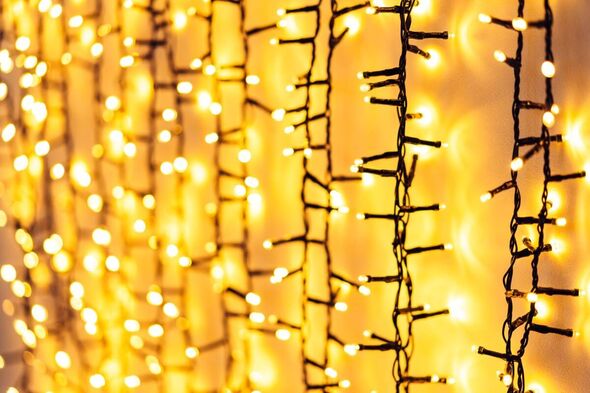
As winter bites and energy bills soar, British households are reining in their festive cheer by scaling down Christmas decorations.
With the cost of living crisis tightening its grip, families across the UK are seeking ways to reduce expenses, with some even dimming their Christmas lights to save pennies.
Concerns over energy expenses are growing, with more than six out of ten (62%) households apprehensive about the forthcoming Christmas energy bills, particularly since 70% typically see an increase in costs during this period.
Among some of the cost-cutting activities Britons are turning down the thermostat and opting for alternative cooking methods instead of traditional ovens in an effort to help stretch their budgets further.
However, Utilita Energy advises that understanding the running costs of electrical items is key to making savvy savings.
When it comes to Christmas lights, there’s a clear winner: “LED Christmas lights, which are distinguished by their built-in bulbs that cannot be removed are six times cheaper to run than the older style incandescent ones – where the bulbs can be replaced,” explained a spokesperson from the energy firm.
“On average, lighting your Christmas tree with incandescent lights costs 6p a day compared to LED lights, which costs 1p per day,” they said.
To help consumers navigate these costs, Utilita Energy has launched The Power Price List, detailing the running costs of 76 common household devices, whether used per minute, cycle, average use, or on standby.
A spokesperson for the brand stated: “When you know how much electrical items cost to run, you can make an informed decision on how long to use it for and whether you should avoid leaving it on standby.”
Research has revealed that nearly half (44%) of people believe their festive season energy bills soar due to electronic usage, with televisions being a significant contributor.
Indeed, the typical household is expected to indulge in an extra 81 hours of movie and television watching during the Christmas period.
Additionally, a considerable 62% attribute the spike in power consumption to more frequent use of cooking devices, with nearly half (48%) playing host over the holidays, as per OnePoll.com findings.
Consequently, 29% plan to keep a closer eye on their December energy usage, while a substantial 71% recognise the significance of actively working towards reducing their consumption.
Adding to the conversation, a representative from Utilita Energy commented: “Christmas doesn’t have to be so costly if homeowners are savvy and mindful with their home habits.”


















